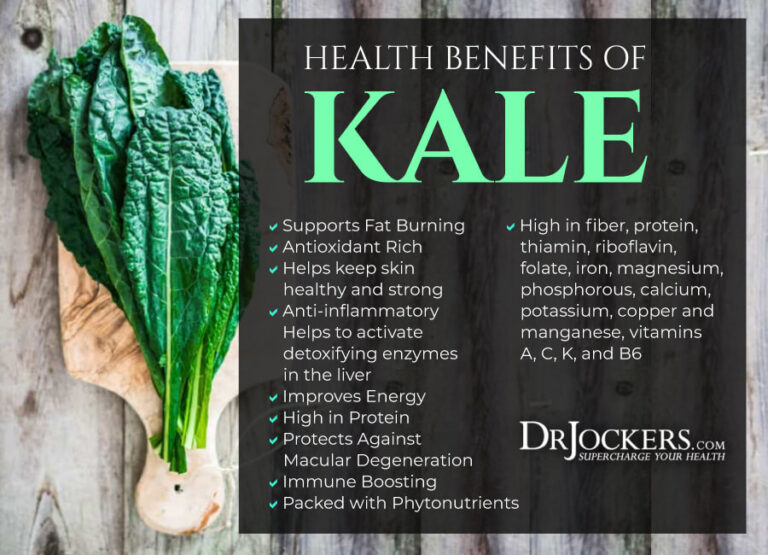Asparagus: The Verdant Spear Unveiling a Universe of Surprising Health Benefits
From the tender kiss of spring, emerging from the earth like emerald jewels, asparagus has captivated palates and adorned tables for millennia. More than just a fleeting seasonal delight, this elegant vegetable, with its distinct flavor and satisfying crunch, holds a storied past and a surprisingly potent array of health benefits that often go unnoticed. This is not merely a vegetable; it is a testament to nature’s profound pharmacy, a silent guardian of our well-being, ready to reveal its secrets to those who delve beyond its succulent exterior.
Our journey into the world of asparagus is an exploration not just of nutrition, but of history, biochemistry, and the intricate dance between food and human health. We will peel back the layers of misconception, address the curious peculiarities, and ultimately present asparagus as a culinary champion and a health powerhouse, an indispensable ally in the pursuit of vibrant living. Prepare to discover why this verdant spear is far more than just a side dish; it is a superfood symphony waiting to elevate your health.
The Storied Past: A Royal Vegetable Through the Ages
The story of asparagus begins not in modern kitchens, but in the dusty annals of antiquity. Its name, derived from the Greek word "asparagos," meaning "sprout" or "shoot," hints at its ancient lineage. Evidence suggests that asparagus was cultivated as far back as 3000 BC in ancient Egypt, depicted in wall paintings and revered for its delicate flavor and purported medicinal properties. The Egyptians, with their profound understanding of botanical remedies, recognized its value, likely for its diuretic effects and its ability to soothe certain ailments.
The Romans, renowned for their culinary sophistication, were equally enamored. The Roman Emperor Augustus, known for his meticulous attention to detail, was so fond of asparagus that he reportedly organized special "asparagus fleets" to transport it swiftly from afar, ensuring its freshness. He even coined the phrase "faster than cooking asparagus" to describe rapid action, a testament to its widespread appreciation and quick preparation. Roman cookbooks, such as Apicius’s "De Re Coquinaria," feature elaborate asparagus recipes, showcasing its status as a luxury vegetable enjoyed by the elite.
Moving eastward, the Chinese, with their deep roots in herbal medicine, also incorporated asparagus into their pharmacopeia. They utilized it for its cleansing properties, believing it could clear heat from the body and support kidney function. By the Middle Ages, asparagus had spread across Europe, though its cultivation experienced ebbs and flows. It was particularly embraced during the Renaissance, gracing the tables of royalty and nobility, solidifying its reputation as a "royal vegetable." The French King Louis XIV, a notorious gourmand, was so fond of asparagus that he ordered special greenhouses built to cultivate it year-round.
This rich history is more than mere trivia; it underscores asparagus’s enduring appeal and hints at the inherent recognition of its beneficial qualities long before modern science could elucidate them. For centuries, humanity instinctively understood that this tender shoot offered something profound, a silent promise of vitality.
The Nutritional Powerhouse: A Deep Dive into Asparagus’s Composition
Beyond its historical grandeur, asparagus truly shines in its nutritional profile. It’s a low-calorie, nutrient-dense food, packing a remarkable punch of vitamins, minerals, and unique phytochemicals. To understand its surprising health benefits, we must first appreciate the symphony of compounds working within each spear.
Macronutrients: The Foundation
Asparagus is remarkably low in calories, with a mere 20 calories per 100 grams (about 5-6 spears). This makes it an ideal food for weight management, allowing for generous portions without guilt. It contains a small amount of protein (around 2.2g per 100g), making it one of the higher-protein vegetables, and minimal fat. Its carbohydrate content is also modest, with a significant portion of that being dietary fiber.
Micronutrients: The Orchestrators of Health
Here’s where asparagus truly distinguishes itself:
-
Vitamin K (Phylloquinone): Asparagus is an exceptional source of Vitamin K, a fat-soluble vitamin crucial not just for blood coagulation (its primary recognized role), but profoundly impacting bone health. It aids in the carboxylation of osteocalcin, a protein essential for binding calcium to the bone matrix, thereby strengthening bones and potentially reducing the risk of osteoporosis. For a knowledgeable audience, this connection between Vitamin K and bone density, beyond its role in clotting, is a key insight.
-
Folate (Vitamin B9): This essential B-vitamin is a star player in asparagus. Folate is vital for DNA synthesis and repair, cell division, and the formation of red blood cells. Its role in preventing neural tube defects during pregnancy is well-known, but its broader significance extends to heart health, where it helps convert homocysteine into methionine, reducing levels of this potentially damaging amino acid linked to cardiovascular disease.
-
Vitamin A (Beta-Carotene): Asparagus provides a good amount of Vitamin A, primarily in the form of beta-carotene, a powerful antioxidant precursor to Vitamin A. This vitamin is critical for vision, immune function, and skin health, playing a role in cell growth and differentiation.
-
Vitamin C (Ascorbic Acid): While not as high as citrus fruits, asparagus still contributes a healthy dose of Vitamin C, a potent antioxidant essential for immune system function, collagen synthesis (for skin, bones, and connective tissue), and iron absorption.
-
Vitamin E (Alpha-Tocopherol): This fat-soluble antioxidant works in synergy with Vitamin C to protect cells from oxidative damage, supporting skin health and immune function.
-
Other B-Vitamins: Asparagus also offers smaller but significant amounts of other B-vitamins like thiamine (B1), riboflavin (B2), niacin (B3), and pyridoxine (B6). These vitamins are crucial coenzymes in numerous metabolic processes, helping the body convert food into energy, maintain nerve function, and support overall cellular health.
Minerals: The Unsung Heroes
Asparagus is a good source of several important minerals:
-
Potassium: An electrolyte vital for maintaining fluid balance, nerve signaling, and muscle contractions, potassium is also crucial for blood pressure regulation, helping to counteract the effects of sodium.
-
Iron: Essential for oxygen transport in the blood (as part of hemoglobin) and for energy production. The Vitamin C in asparagus enhances its iron absorption.
-
Phosphorus: A key component of bones and teeth, and involved in energy metabolism (ATP production), cell signaling, and DNA/RNA synthesis.
-
Zinc: Important for immune function, wound healing, DNA synthesis, and cell division.
Dietary Fiber: The Gut’s Best Friend
With approximately 2-3 grams of fiber per 100g, asparagus is an excellent source of both soluble and insoluble fiber. Insoluble fiber adds bulk to stool, promoting regularity and preventing constipation. Soluble fiber, on the other hand, forms a gel-like substance in the digestive tract, which can help lower cholesterol and stabilize blood sugar levels. More importantly, a significant portion of asparagus fiber is prebiotic, a concept we will explore further.
The Surprising Health Benefits: Unveiling Asparagus’s Hidden Power
Now, armed with an understanding of its rich composition, let’s delve into the truly surprising and profound health benefits that elevate asparagus beyond a mere vegetable into a functional food powerhouse.
1. Antioxidant Powerhouse: Battling Oxidative Stress
Perhaps one of the most significant and often underestimated benefits of asparagus lies in its incredible antioxidant capacity. Our bodies are constantly exposed to free radicals, unstable molecules that can cause oxidative stress, leading to cellular damage, inflammation, and contributing to chronic diseases like cancer, heart disease, and neurodegenerative disorders. Asparagus acts as a formidable shield, thanks to a diverse array of antioxidant compounds:
- Flavonoids and Polyphenols: Asparagus is rich in flavonoids like quercetin, rutin, kaempferol, and isohamnetin, along with various other polyphenolic compounds. These plant compounds are potent free radical scavengers, directly neutralizing harmful molecules and protecting cell integrity.
- Glutathione: Often called the "master antioxidant," glutathione is produced naturally by the body, but its levels can be boosted by dietary intake. Asparagus is one of the best vegetable sources of glutathione, which plays a critical role in detoxification processes, immune function, and protecting cells from oxidative damage. Its presence is a significant marker of asparagus’s anti-aging and disease-preventing potential.
- Saponins: These unique plant compounds, also found in quinoa and ginseng, possess strong antioxidant and anti-inflammatory properties. They contribute to asparagus’s bitter notes but offer considerable health benefits.
- Vitamins C and E, Beta-Carotene: As discussed, these classic antioxidant vitamins work in concert with the phytochemicals to provide comprehensive protection.
The cumulative effect of these antioxidants means that regular consumption of asparagus can significantly bolster the body’s defenses against cellular damage, slowing down aging processes and reducing the risk of numerous chronic ailments.
2. Gut Health Guardian: Fueling Your Microbiome with Prebiotics
Beyond its general fiber content, asparagus contains special types of carbohydrates known as fructans, including inulin. These are non-digestible fibers that act as prebiotics. Prebiotics are the food source for the beneficial bacteria (probiotics) residing in our gut microbiome.
When we consume asparagus, these fructans travel undigested to the large intestine, where they are fermented by beneficial bacteria like Bifidobacteria and Lactobacilli. This fermentation process yields short-chain fatty acids (SCFAs) like butyrate, acetate, and propionate, which are vital for gut health.
- Nourishing Probiotics: By feeding beneficial bacteria, asparagus helps to maintain a balanced and diverse gut microbiome, which is crucial for digestion, nutrient absorption, and immune system regulation.
- Strengthening the Gut Barrier: SCFAs, particularly butyrate, are the primary energy source for colonocytes (cells lining the colon). This helps maintain the integrity of the gut barrier, preventing "leaky gut" syndrome and reducing systemic inflammation.
- Immune Modulation: A healthy gut microbiome is intimately linked to a robust immune system. Prebiotics in asparagus can modulate immune responses, making the body more resilient to pathogens and reducing the risk of autoimmune conditions.
- Improved Digestion & Regularity: The combined effect of soluble and insoluble fiber, along with a healthy microbiome, promotes regular bowel movements and can alleviate symptoms of constipation and irritable bowel syndrome (IBS) for many individuals.
This prebiotic effect is a truly "surprising" benefit, transforming asparagus from a simple fiber source into a sophisticated gut health orchestrator.
3. Anti-Inflammatory Properties: Quieting the Body’s Fire
Chronic inflammation is a silent epidemic, underlying virtually every major chronic disease, from heart disease and diabetes to arthritis and certain cancers. Asparagus, through its rich blend of antioxidants and specific anti-inflammatory compounds, acts as a powerful anti-inflammatory agent.
- Saponins: These unique compounds are particularly effective at modulating inflammatory pathways in the body. Research suggests they can inhibit the production of pro-inflammatory cytokines, essentially dampening the body’s inflammatory response.
- Flavonoids (Quercetin, Rutin): Beyond their antioxidant roles, quercetin and rutin have well-documented anti-inflammatory properties. They can inhibit enzymes involved in the inflammatory cascade, reducing swelling and pain.
- Asparagusic Acid: While famously linked to the urine odor (more on that later), asparagusic acid and its derivatives also exhibit anti-inflammatory activity.
By helping to reduce systemic inflammation, asparagus contributes to a reduced risk of chronic diseases and can offer symptomatic relief for inflammatory conditions.
4. Cardiovascular Health: A Heart-Healthy Ally
Asparagus offers a multi-pronged approach to supporting cardiovascular health:
- Folate and Homocysteine: As mentioned, the abundant folate in asparagus plays a critical role in metabolizing homocysteine. High levels of homocysteine are an independent risk factor for heart disease and stroke, as it can damage blood vessel linings. By helping to keep homocysteine levels in check, asparagus actively protects your cardiovascular system.
- Potassium and Blood Pressure: Its rich potassium content helps balance sodium levels, promoting healthy blood pressure. This is crucial for preventing hypertension, a major risk factor for heart attacks and strokes.
- Rutin: This flavonoid has been shown to strengthen capillary walls and improve blood vessel elasticity, contributing to overall circulatory health.
- Fiber: Both soluble and insoluble fiber contribute to heart health. Soluble fiber can help lower LDL ("bad") cholesterol by binding to bile acids in the gut and facilitating their excretion, forcing the liver to use more cholesterol to produce new bile acids.
Collectively, these compounds make asparagus a formidable ally in maintaining a healthy heart and robust circulatory system.
5. Blood Sugar Regulation: A Sweet Solution for Stability
For those concerned with blood sugar control, including individuals with type 2 diabetes or those at risk, asparagus offers significant benefits:
- Dietary Fiber: The soluble fiber in asparagus slows down the absorption of glucose (sugar) into the bloodstream, preventing rapid spikes and crashes in blood sugar levels. This steady release of glucose is crucial for managing diabetes and preventing insulin resistance.
- Chromium: While present in smaller amounts, chromium is a trace mineral that enhances the action of insulin, improving glucose uptake by cells and thus helping to regulate blood sugar.
- Antioxidants & Anti-inflammatory Compounds: By reducing oxidative stress and inflammation, which are key contributors to insulin resistance, asparagus indirectly supports better blood sugar control.
Early research also suggests that compounds in asparagus may directly improve insulin secretion and sensitivity, making it a promising dietary component for metabolic health.
6. Bone Health Beyond Calcium: Vitamin K’s Crucial Role
While calcium is widely recognized for bone health, Vitamin K often takes a backseat, yet its role is equally critical. Asparagus’s high Vitamin K content makes it an excellent food for strong bones.
- Osteocalcin Activation: Vitamin K is essential for the activation of osteocalcin, a protein that guides calcium into the bone matrix. Without sufficient Vitamin K, osteocalcin remains inactive, leading to poor calcium utilization and weaker bones, despite adequate calcium intake.
- Reduced Fracture Risk: Studies have shown a correlation between higher Vitamin K intake and a reduced risk of bone fractures, particularly in older adults.
This nuanced understanding of bone health, emphasizing Vitamin K’s pivotal role, highlights another surprising facet of asparagus’s power.
7. Cognitive Function and Brain Health: Fueling the Mind
The brain, a highly metabolically active organ, is particularly vulnerable to oxidative stress and inflammation. Asparagus’s rich nutrient profile offers several benefits for cognitive function:
- Folate: Adequate folate levels are critical for neurotransmitter synthesis and overall brain health. Low folate has been linked to an increased risk of cognitive decline and neurodegenerative diseases like Alzheimer’s. By reducing homocysteine, folate also protects brain vasculature.
- Antioxidants: The powerful antioxidants (flavonoids, glutathione, Vitamins C & E) in asparagus protect brain cells from damage caused by free radicals, potentially slowing down age-related cognitive decline and reducing the risk of neurodegenerative disorders.
- Anti-inflammatory Properties: By mitigating inflammation, asparagus helps create a healthier environment for brain function, as chronic neuroinflammation is implicated in various cognitive impairments.
Thus, this humble vegetable silently works to keep our minds sharp and resilient.
8. Diuretic and Detoxification Support: The Asparagine Effect
This is where we address the elephant in the room: the distinctive odor in urine after consuming asparagus. This phenomenon is attributed to asparagusic acid and its sulfur-containing metabolites, particularly methanethiol and S-methylthioacrylate, which are rapidly absorbed and excreted by the kidneys. While the smell can be off-putting to some (and fascinatingly, not everyone can smell it due to genetic variations), it underscores a key physiological effect of asparagus: its diuretic properties.
- Asparagine: Asparagus is naturally rich in the amino acid asparagine, which is a natural diuretic. Diuretics promote the production of urine, helping the body flush out excess fluids and salts.
- Kidney Support: This diuretic action can be beneficial for individuals experiencing fluid retention or edema. By encouraging kidney function, asparagus helps the body excrete waste products and toxins more efficiently, supporting the body’s natural detoxification processes.
- Urinary Tract Health: The increased urine flow can also help flush out bacteria from the urinary tract, potentially reducing the risk of urinary tract infections (UTIs).
So, while the smell is a notable side effect, it’s a harmless byproduct of asparagus’s active contribution to fluid balance and detoxification.
9. Potential Anti-Cancer Properties: A Promising Area of Research
While more human clinical trials are needed, emerging research suggests that asparagus may possess significant anti-cancer potential, primarily due to its high concentration of antioxidants and specific phytochemicals.
- Glutathione: Its role as a master antioxidant and detoxifier is crucial. Glutathione helps neutralize carcinogens and protect DNA from damage that can lead to cancer initiation.
- Saponins: These compounds have demonstrated anti-proliferative effects against various cancer cell lines in in vitro and animal studies, meaning they can inhibit the growth and spread of cancer cells. They may induce apoptosis (programmed cell death) in cancer cells.
- Flavonoids: Quercetin and rutin, abundant in asparagus, have been extensively studied for their anti-cancer properties, including inhibiting tumor growth and angiogenesis (the formation of new blood vessels that feed tumors).
This area of research is particularly exciting, positioning asparagus as a potential protective food against certain cancers, including colon, breast, and liver cancers. It’s important to frame this as "potential" and "promising," acknowledging the ongoing scientific exploration.
10. Weight Management: A Deliciously Lean Choice
For those seeking to manage or lose weight, asparagus is an ideal food:
- Low Calorie, High Volume: As mentioned, it’s incredibly low in calories, allowing for generous portions that fill you up without adding excessive energy.
- High Fiber: The significant fiber content contributes to satiety, helping you feel full for longer and reducing overall calorie intake by curbing cravings and overeating.
- Water Content: Asparagus is over 90% water, further contributing to fullness and hydration.
- Nutrient Density: Despite its low-calorie count, it’s packed with essential vitamins and minerals, ensuring you’re getting vital nutrients even on a calorie-restricted diet.
Incorporating asparagus into your diet is a smart and delicious strategy for sustainable weight management.
11. Skin Health: The Radiance from Within
The same antioxidants and vitamins that protect internal organs also contribute to radiant, healthy skin:
- Vitamins A, C, and E: These powerful antioxidants protect skin cells from damage caused by UV radiation and environmental pollutants, which contribute to premature aging, wrinkles, and dullness. Vitamin C is also crucial for collagen production, the structural protein that gives skin its firmness and elasticity.
- Hydration: Its high water content contributes to overall hydration, which is essential for plump, supple skin.
- Detoxification: By supporting detoxification pathways, asparagus helps to clear toxins that can manifest as skin blemishes or dullness.
A diet rich in asparagus can contribute to a healthier complexion, providing a natural glow from the inside out.
Beyond the Benefits: Selecting, Storing, and Savoring Asparagus
To fully harness the power of asparagus, understanding how to select, store, and prepare it is key.
Selecting the Best Spears:
- Look for Bright Color: Green asparagus should be a vibrant green, purple a rich purple, and white a creamy white.
- Firm Stalks: The spears should be firm and stand upright. Avoid limp or rubbery stalks, which indicate age.
- Tight Tips: The tips should be closed and compact, not splayed or mushy.
- Moist, Freshly Cut Ends: The ends should look fresh and not dry or woody.
Storage for Optimal Freshness:
Asparagus is best enjoyed fresh, but it can be stored to extend its life:
- Trim Ends: Trim about an inch off the bottom of the stalks.
- Water Bath: Place the trimmed spears upright in a glass jar or container with about an inch of water at the bottom.
- Cover & Refrigerate: Cover the tips loosely with a plastic bag and refrigerate for up to 3-5 days. Change the water daily.
Culinary Versatility: A Kitchen Chameleon
Asparagus is incredibly versatile, adapting to a myriad of cooking methods and cuisines:
- Roasting: Toss with olive oil, salt, and pepper and roast at 400°F (200°C) until tender-crisp (10-15 minutes). This brings out its natural sweetness.
- Grilling: Similar to roasting, grilling imparts a smoky flavor. Perfect for summer BBQs.
- Steaming/Blanching: A quick steam or blanch (1-3 minutes) preserves its vibrant color and delicate crunch. Ideal for salads or as a light side.
- Sautéing: Quick sauté with garlic and butter or olive oil.
- Raw: Thinly shaved asparagus can be a delightful addition to salads, offering a refreshing crunch.
- Soups, Stir-fries, Omelets, Pasta Dishes: Asparagus integrates beautifully into a wide range of dishes, adding flavor, texture, and a burst of nutrients.
Types of Asparagus:
While green asparagus is the most common, its cousins offer subtle variations:
- White Asparagus: Cultivated by mounding soil around the growing spears, preventing chlorophyll production. It has a milder, more delicate flavor and a tender texture, highly prized in European cuisine.
- Purple Asparagus: Naturally sweeter and fruitier, with a slightly less fibrous texture. Its vibrant color is due to anthocyanins, powerful antioxidants also found in blueberries and red cabbage. It loses some of its purple hue when cooked.
Potential Considerations and FAQs
While overwhelmingly beneficial, a knowledgeable audience appreciates a balanced perspective:
- The Urine Odor: As discussed, this is a harmless and natural metabolic byproduct of asparagusic acid. Only about 25-50% of the population can smell it, and it’s a sign that the beneficial compounds are being metabolized.
- Purines and Gout: Asparagus contains moderate levels of purines, compounds that break down into uric acid. For individuals with gout, a condition caused by excessive uric acid, very large quantities of asparagus might theoretically be a concern, but moderate consumption is generally considered safe and beneficial due to its anti-inflammatory properties.
- Allergies: Asparagus allergies are rare but can occur, manifesting as skin rashes, swelling, or digestive upset.
- Drug Interactions: Due to its Vitamin K content, individuals on blood-thinning medications (anticoagulants like warfarin) should consult their doctor about consistent intake to avoid potential interactions.
- Oxalates: Asparagus contains oxalates, which can contribute to kidney stones in susceptible individuals. However, the amount is generally not problematic in a balanced diet, and its diuretic properties can actually be beneficial for kidney health.
Conclusion: A Verdant Testament to Nature’s Wisdom
Our journey through the world of asparagus reveals it to be far more than a simple springtime vegetable. From its ancient reverence to its intricate biochemical makeup, asparagus stands as a powerful testament to nature’s profound ability to nourish and heal. It is a vibrant, low-calorie spear packed with an extraordinary array of vitamins, minerals, fiber, and unique phytochemicals that collectively offer a staggering spectrum of health benefits.
From battling oxidative stress and taming inflammation to nurturing a thriving gut microbiome, fortifying our bones, safeguarding our hearts, and potentially even warding off cancer, asparagus is a silent, verdant guardian of our well-being. It sharpens our minds, stabilizes our blood sugar, and helps our bodies gracefully detoxify.
So, the next time you encounter those elegant green, white, or purple spears, remember the rich history and the hidden universe of health benefits they contain. Embrace asparagus not just as a fleeting culinary pleasure, but as a deliberate and delicious choice for vibrant health. Let its story inspire you to incorporate this extraordinary vegetable into your diet, allowing its surprising powers to cultivate a healthier, more resilient you. In every tender bite, you are not just savoring a delicacy; you are partaking in a timeless legacy of health, whispered through the ages by this magnificent, unassuming spear.







